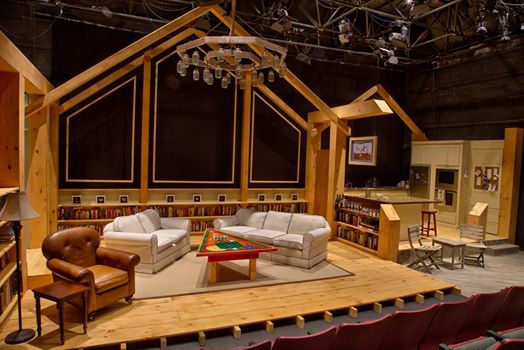The finished set of the play Stick Fly. The model of the set can be seen at the end of the November post. Photo by the talented Kevin McDonald, who also did a hell of a lot of the work on the build. Design: Nancy Thompson. Nancy also built the chandelier and the games table!
The play was excellent, with tight direction and great acting! One of the best plays that I have ever seen!
The play was excellent, with tight direction and great acting! One of the best plays that I have ever seen!

 RSS Feed
RSS Feed